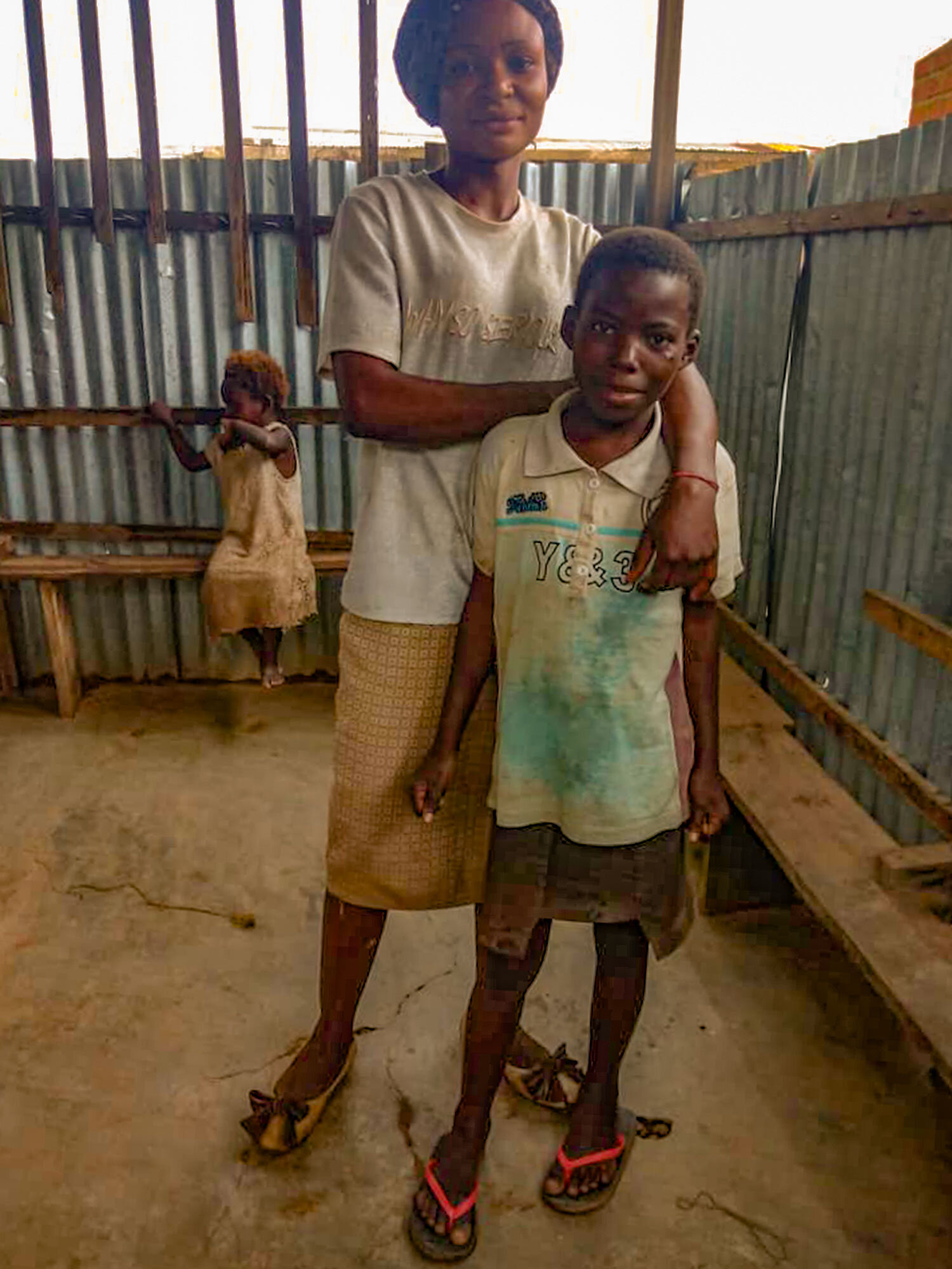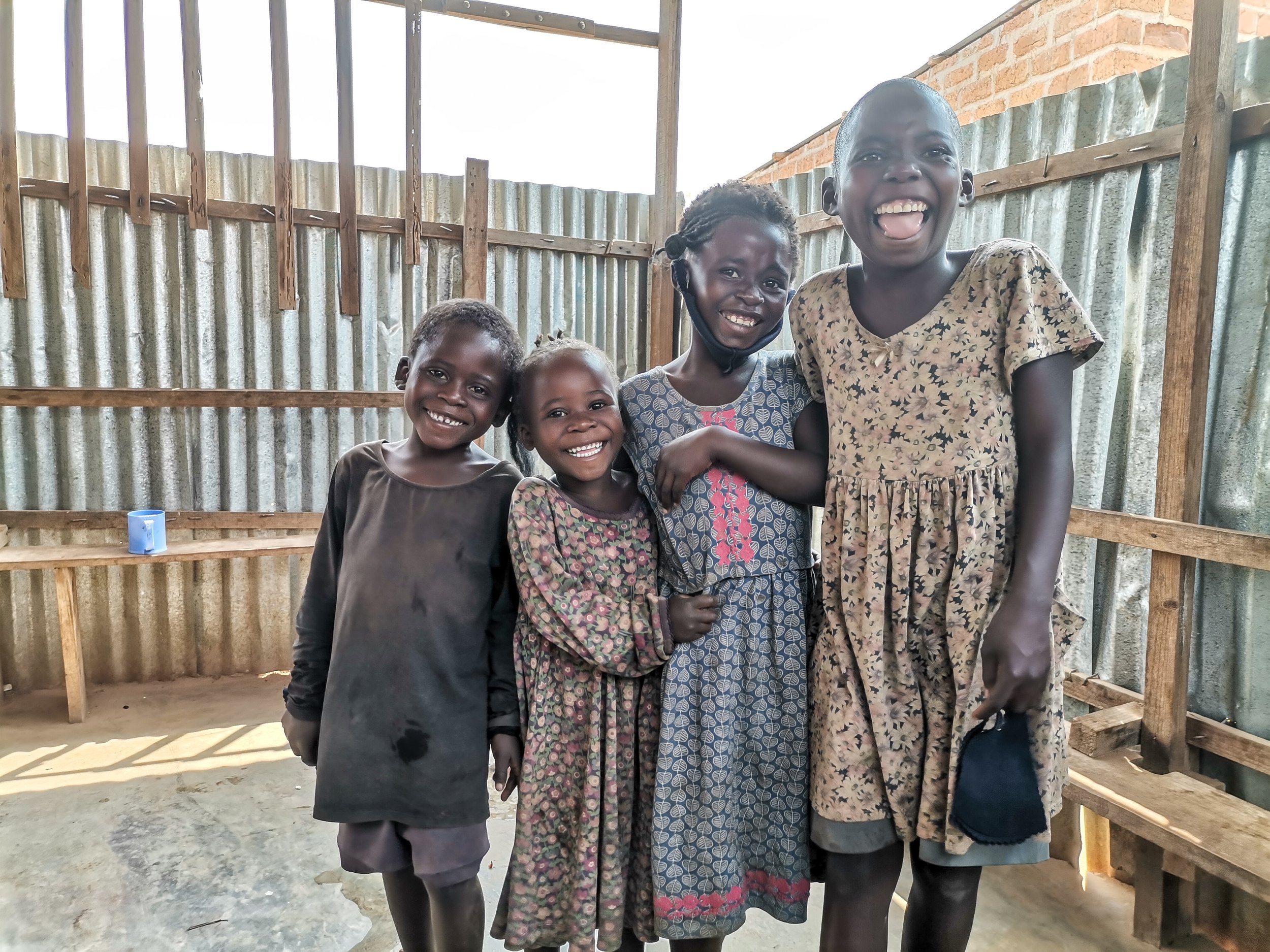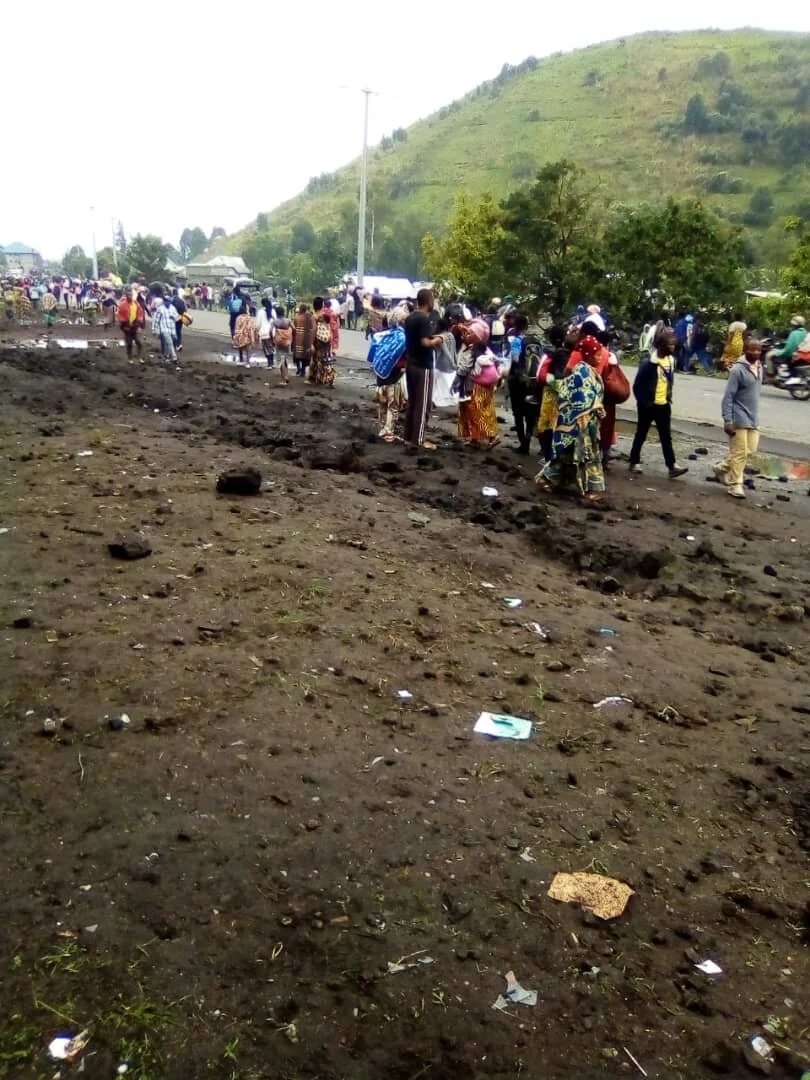The Story of Kikula Community
With a population of over 200,000, Kikula is one of the largest slum townships on the outskirts of the bustling city of Likasi. In 1993, Kikula was in the epicentre of civil conflict, with rebel groups fighting for regional independence from the government. Eventually, the conflict passed, but in its wake, left thousands of newly orphaned children. With the recurrence of war in other parts of the country, the number of orphaned children and vulnerable families has increased as they fled the conflict and headed south, many of them ending up in the poorest of the poor communities like Kikula.
Though it hosts the largest market in the Likasi area, food is scarce in Kikula. Many people are unable to feed their families due to the high levels of unemployment. If people want to farm to provide for their families, it is challenging as the mines have polluted the land and the streams.
In 2018, a resident in Kikula was digging a toilet in their yard when they discovered a precious – and lucrative – mineral in the ground: cobalt. In a matter of days, word spread and people illegally moved into the community, in search of more cobalt. The mining culture brings detrimental effects to communities: drinking, drugs, abuse and child labour. Thankfully, the government ceased the illegal mining and these miners have left the community, which is a huge answer to prayer. With Kikula being demarcated as mining land, the reality is that in the next few years it is possible that a mining company will start commercially mining, displacing vast areas of the community and forcing people to find other areas to live.
50 Children currently supported
7 Care Workers Coordinated by Kaj
9 Km from the Likasi Local Office
Basic Services Started in 2011
Seeing the immense vulnerability within their community, local volunteer Care Workers came together in 2011 and partnering with Hands at Work, formed the Mapendo Community Based Organisation (CBO). Operating from a local church’s property, Care Workers are committed to ensuring that 50 of the most vulnerable children receive a hot, nutritious meal daily and are supported with their education and basic health care. The local Hands at Work team are continuing to walk with the team of Care Workers as they grow in their understanding of what it means to holistically care for the vulnerable.
Understanding their call to answer the biblical mandate in James 1:27 to care for the orphaned and widowed in their distress, the Care Workers meet regularly for Relationship Groups. Here they can share their personal stories, hear God’s word and find His healing in their struggles, enabling them to pass this love on to the most vulnerable children in Kikula.
An exciting step for the Mapendo CBO was the construction of a fence around the Care Point in 2020 using sacks and wood, ensuring the safety of the children and Care Workers.
Meet Dany
Dany’s* mother was married and had two sons. In 2018, her husband tragically passed away, leaving her grieving with two young boys. She moved from the city of Lubumbashi to the slum community of Kikula, 130 kilometres away. Several years later, she remarried and had two more children: Dany and his little sister. Last year, Dany’s mother also passed away, leaving her four children behind. Though their grandmother stepped in to care for them, food security remains a daily battle. Despite working hard to farm a small plot of land, she has little access to seeds or fertilizer, making her harvest very poor. Thankfully, the Kikula Care Workers met and started caring for this family. Each day, the children come to the Care Point for a hot, nutritious meal, and have also been supported with the provision of mattresses and blankets for their home. Regularly, Care Worker Maman Faila visits Dany and his family in their home. She is somebody that Dany trusts.
The local Hands at Work team in Likasi currently supports nine Community Based Organisations, which exist to care for the most vulnerable in their communities. The office provides training, networking, and encouragement to those Community Based Organisations like Kikula. It also gives administrative support, including helping with funding proposals, monitoring and evaluation, bookkeeping and reporting to donors.
BE INSPIRED BY UPDATES FROM KIKULA COMMUNITY


















Praise’s grandmother Bertha began caring for him, but she was desperately poor and trying to survive. Praise was hungry - continually crying. People in the community said he would die and tried to put ritual charms around him but Bertha refused and knew God would provide. After her husband passed away many years ago, she said she learned to trust God throughout any hardship.